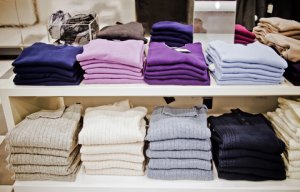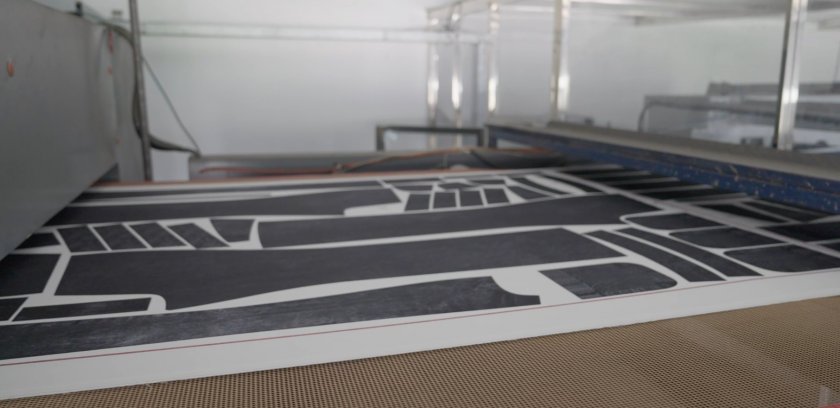
Dealing with deadstock at Shein
Opinion


Brand’s foundation donated $26 million to social and environmental impact initiatives between 2022 and 2024.

23rd January 2025
Adrian Wilson
|
Singapore
In a bid to counter considerable criticism about its business model and practices, ultra-fast fashion brand Shein has announced the development of a new polyester recycling process and seperately said that in 2024, approximately 380,000 pieces of the denim apparel it sold was produced using the water-saving Cool Transfer denim printing process.
The non-profit Shein Foundation will also donate US$5.30 million to the Africa Collect Textiles (ACT) in the latest of its ongoing philanthropic initiatives.
These announcements come as Shein continues to attract opposition to its pending listing on the London Stock Exchange, with Stuart Trevor, founder of the AllSaints brand, the latest to weigh in on the subject. Speaking to the UK’s City AM on Monday, he said he would be horrified if Shein goes ahead with the listing, labelling the retailer as the “worst offender in the industry”.
“Fast fashion really has changed the whole industry, because it’s now like a race to the bottom and the planet cannot afford it,” Trevor said. “Everybody’s got wardrobes full of clothes that they don’t wear. We’re never going to stop people from buying clothes, but it would be better if we could encourage people to create longer-lasting items of clothing.”
Shein connects around 6,000 garment factories through its AI-driven platform and is predicted to become the sixth largest apparel and footwear retailer by 2027. It will most likely face obstacles going forward, not least in proving compliance, and especially within the EU.
Two weeks ago, MPs at a UK Business and Trade committee hearing repeatedly challenged a senior lawyer representing the brand over the use of cotton from Xinjiang and other unethical practices. Liam Byrne, chair of the committee, commented that a reluctance to answer basic questions “bordered on contempt”, according to the BBC, with other MPs complaining of “wilful ignorance”.
Positive practices
Despite such problems, Shein continues to emphasise its commitment to positive practices. The new polyester recycling method it will introduce has been developed with Donghua University, a leading Chinese research institute, as part of a multi-year collaboration.
The process is said to accept both pre and post-consumer polyester feedstock, including both textile waste and PET bottles, leading to improved cost efficiency compared to the current recycled polyester used in Shein’s products. Testing by Donghua’s team of researchers has also shown that the recycled polyester fabrics produced through this process can be recycled repeatedly without significant impact on material properties, with the inputs chemically broken down, refined and reconstituted at the polymer level.
Selected partner fibre manufacturers are working to scale up the technology to an output of 3,000 metric tons by June this year.
Shein has also adoped Cool Transfer denim printing via a partnership with NTX in Singapore, which it says has enabled it to save almost 19,500 metric tons of water since 2022.
The Cool Transfer process not only minimises the use of water and energy, but also simplifies the production cycle, ensuring precision and efficiency at every step.
It involves digital printing with reactive ink to print denim textures, artwork or patterns onto a transfer film. The designs are then imprinted onto white denim fabric using cold transfer equipment, replicating the effects of washing denim to produce features like faded finishes, whiskering and retro-worn effects. Verified by Bureau Veritas in October 2023, the process reduces water usage by 70.5% compared to conventional denim washing methods.
Consolidated donations
The Shein Foundation’s recent investments meanwhile include the funding of ACT, a social enterprise that has developed a used textiles collection and recycling pilot programme in Kenya, as well as social impact donations under the Shein Cares initiative. These are focused on promoting women’s empowerment and gender equality, supporting the holistic development of children and alleviating poverty, as well as grants under an Extended Producer Responsibility (EPR) fund, to tackle global textile waste and further the development of a more circular fashion ecosystem,. Between 2021 and 2024, Shein disbursed over $26 million towards social and environmental impact initiatives.
“Empowering and giving back to the communities we reach has always been core to our operating philosophy,” said Shein executive chairman Donald Tang. “Establishing the Shein Foundation and consolidating our charitable efforts under a formal structure brings greater accountability and transparency to our donations. It also strengthens our ability to direct our charitable giving in a more impactful and sustained manner to better support causes and organisations that align with our values.”

Business intelligence for the fibre, textiles and apparel industries: technologies, innovations, markets, investments, trade policy, sourcing, strategy...
Find out more